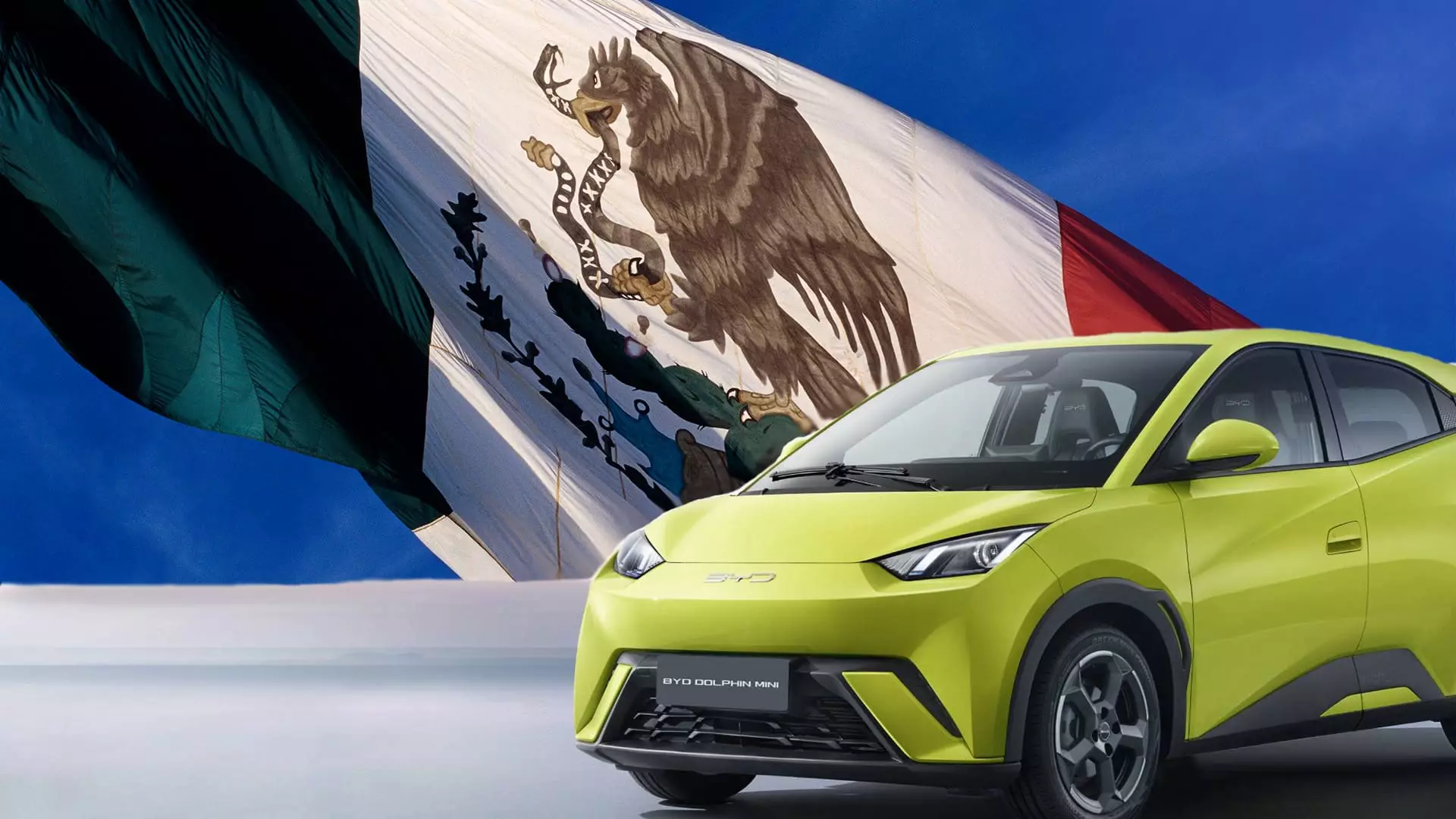The Chinese electric vehicle (EV) makers have been facing tariffs in the U.S., prompting them to explore other markets to sell their high-tech cars. One such market that has emerged as a hot spot for Chinese EVs is Mexico. Chinese automakers have been aggressively selling their vehicles in Mexico, with China leading as the top car supplier to the country last year, exporting $4.6 billion worth of vehicles. The affordability of Chinese EVs, such as the BYD Dolphin Mini priced at around $21,300, has attracted Mexican customers, even those who were initially wary of EVs.
In an attempt to further expand their market presence in North America, Chinese EV makers like BYD have been exploring factory sites in Mexican states such as Durango, Jalisco, and Nuevo Leon. The establishment of a plant in Mexico by BYD is projected to create around 10,000 jobs, providing an economic boost to the country. However, U.S. officials are concerned that this move could be part of a larger strategy by Chinese automakers to bypass trade restrictions and gain access to the American market.
The United States-Mexico-Canada Agreement (USMCA), a revised version of the North American Free Trade Agreement (NAFTA), abolished tariffs on many goods traded among the North American countries since 2018. This trade deal allows foreign auto companies manufacturing in Canada or Mexico to export goods to the U.S. without significant tariffs, provided that the building materials are locally sourced. U.S. officials fear that Chinese automakers could exploit this loophole in the agreement to enter the American market, a practice known as circumvention.
The potential scenario of Chinese EV makers setting up production in Mexico and exporting to the U.S. at lower costs poses a direct threat to American automakers, according to industry experts. The U.S. has been striving to scale up its EV industry, and the imposition of a 100% tariff on Chinese EVs by President Joe Biden reflects the need to protect and nurture the domestic EV sector. The concerns over Chinese EVs entering the American market through Mexico have raised alarms among U.S. lawmakers and auto companies, fearing the impact on the competitiveness of the domestic industry.
With pressure from the U.S. to prevent Chinese EV makers from using Mexico as a backdoor entry to the American market, Mexico finds itself in a challenging position. The country needs to maintain its crucial relationship with the U.S. while also considering the potential benefits of Chinese investment. The delicate balancing act involves navigating between supporting economic growth through foreign investment and addressing the concerns raised by the U.S. regarding trade circumvention and competition in the automotive industry.
The growing presence of Chinese EVs in Mexico and the interest of Chinese automakers in establishing production facilities in the country have raised substantial concerns among U.S. officials and industry stakeholders. The potential threat posed to American automakers and the EV industry by Chinese manufacturers using Mexico as a gateway to the U.S. market underscores the need for strategic measures and collaboration between the North American countries to ensure fair trade practices and protect domestic industries.


Leave a Reply